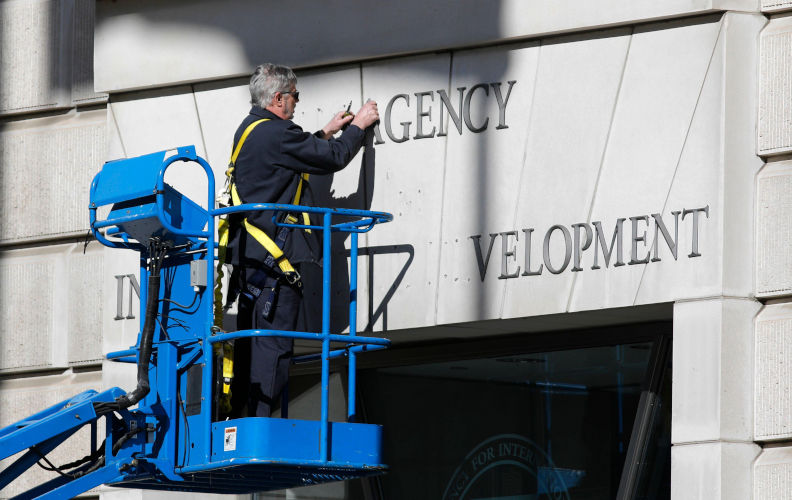The withdrawal of USAID has sent shockwaves through the NGO sector in Cambodia, sparking concern about the future of vital programs.
Beyond the immediate impact on organisations and communities, however, this loss of funding raises broader questions not just about aid funding and its long-term effectiveness, but about the way international charities have come to privatise and control entire social welfare sectors in developing countries like Cambodia.
Tara Winkler, Australian co-founder of the Cambodian Children’s Trust , believes that grappling with such questions is long overdue.
“For decades, foreign-controlled NGOs have operated as parallel systems,” says Winkler, “stepping into roles that should belong to public institutions and communities themselves. Instead of strengthening public systems, too many NGOs create their own, competing with local public systems rather than supporting them. When foreign funding disappears, as it has recently with USAID, these private charity-controlled services collapse, leaving communities without the resources they need to stand on their own. This is a very real and immediate problem that needs to be addressed.”
Winkler knows this first-hand. Her own journey took her from being a well-meaning volunteer tourist to establishing an orphanage – before realising that the very model she had built was part of the problem. She shut it down and spent the next decade working closely with local communities to develop a radically different approach: one that strengthens public services and ensures that social support is led by the people it serves. (The title of the book she wrote about her experiences – ‘How (Not) To Start an Orphanage’ – speaks for itself.)
This CCT initiative is called The Village Hive – a model designed to integrate low-cost, community-driven public systems into local governance structures, rather than keeping them in the hands of private charities run by well-meaning foreigners.
“I think that a profound shift needs to be made in the way charities help poor communities of the kind that are found all over Cambodia and in many other developing countries worldwide,” says Winkler. “For too long, NGOs have positioned themselves as the solution to poverty, rather than recognising that real solutions must come from within communities and governments. If an organisation’s exit means that children, families, or entire communities are left without access to services, then that’s proof that the model was never sustainable to begin with.”
Instead of running parallel programs, Village Hives are embedded within local public systems, ensuring that social protection services are not delivered by foreign-controlled organisations. Rather than providing temporary relief — food handouts, sponsorship programs, or privately controlled education and welfare services — CCT focuses on strengthening community-led networks that prevent crises before they happen.
“This is the difference between the traditional charity model and what we’re doing,” Winkler explains. “Traditional aid provides downstream, band-aid solutions or “ambulances at the bottom of the cliff” – reacting to problems after they’ve happened. But our approach is about prevention, making sure families never fall into crisis in the first place.”
The privatisation of social services by charities has left communities vulnerable, with essential safety nets reliant on foreign charities rather than locally controlled, publicly accountable systems. The Village Hive challenges this model by ensuring that families have access to support through public services and local governance structures, not through services owned and controlled by private organisations.
The real conversation we should be having
The USAID withdrawal may have created uncertainty for NGOs across Cambodia, but it could and, I believe should, lead to discussion, debate, about whether we should maintain the status quo or seriously consider alternative approaches to the provision of aid.
The real issue is not simply that funding has been cut – it’s the unsustainable nature of the international development system. If aid is truly about empowering communities, then it shouldn’t collapse the moment a donor pulls out. If aid organisations operated within a unified public system, rather than as fragmented private initiatives, the loss of one funding source wouldn’t threaten the entire system. Gaps could be filled by other donors, but the core services would remain intact because they would be owned and led by the communities themselves.
Some of the critical questions that donors and aid organisations need to ask in this post-USAID moment include:
Why have so many NGOs built models that compete with public systems rather than strengthening them?
How can international funding support sustainable, long-term solutions instead of creating dependency?
What responsibility do foreign donors have to ensure their exit strategies don’t leave critical gaps?
How do we move from charity-controlled service delivery to truly empowering local communities and governments?
This is not just about Cambodia – it is a global issue. The model of privatised aid has been replicated across the world, leaving social welfare systems fragmented and foreign-controlled. But there is another way, I believe, and know from first hand experience.
The conversation around the USAID withdrawal should not be limited to whether aid should continue, but rather how it should evolve.
Perhaps this USAID crisis provides us all with an opportunity to rethink how we tackle poverty and inequality at its roots? What if, instead of rebuilding old models, we focused on shifting power back to the communities themselves?
If donors and organisations take this moment to rethink their role — not as service providers, but as partners in strengthening public systems — then we may one day look back on February 2025 as the moment where real, lasting change began.
My aim, as the co-founder of CCT, is to render myself irrelevant; no longer needed. My Cambodian staff are proving themselves more than capable of taking care of CCT by themselves. They do not need me telling them what to do. I look forward to becoming redundant.

James Ricketson
Filmmaker/Journalist with 30 years of experience in Cambodia, including 15 months in a maximum security prison on espionage charges.
